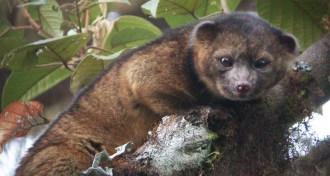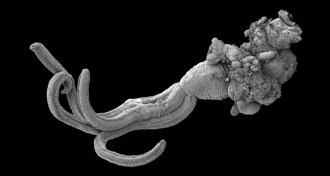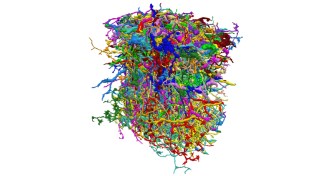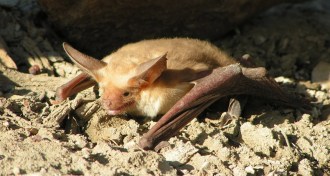Life
Sign up for our newsletter
We summarize the week's scientific breakthroughs every Thursday.
-
 Health & Medicine
Health & MedicineGut-brain communication failure may spur overeating
Restoring a depleted molecule in obese mice repaired their abnormal response to food.
-

-

-
 Animals
AnimalsAntarctic waters may shelter wrecks from shipworms
Ocean currents and polar front form 'moat' that keeps destructive mollusks at bay.
By Susan Milius -
 Health & Medicine
Health & MedicineMediterranean diet may offset genetic risk for stroke
Compared to a low-fat diet, eating fish and olive oil kept blood sugar levels lower in people with a common diabetes risk factor.
-
 Humans
HumansDNA reveals details of the peopling of the Americas
Migrants came in three distinct waves that interbred once in the New World.
-

-
 Neuroscience
NeuroscienceThe Autistic Brain
Thinking Across the Spectrum by Temple Grandin and Richard Panek.
By Meghan Rosen -

-
 Animals
AnimalsNoise may disrupt a bat’s dinner
Mechanical cacophony can drown out the whispers of moving insect prey.
By Susan Milius -
 Neuroscience
NeuroscienceCaffeine shakes up growing mouse brains
When pregnant mice consumed caffeine, their offspring had altered neurons and faulty memory.
-
 Science & Society
Science & SocietyFlu researchers plan to repeat controversial work
The scientists who made the H5N1 strain transmissible between ferrets intend to do the same with H7N9.